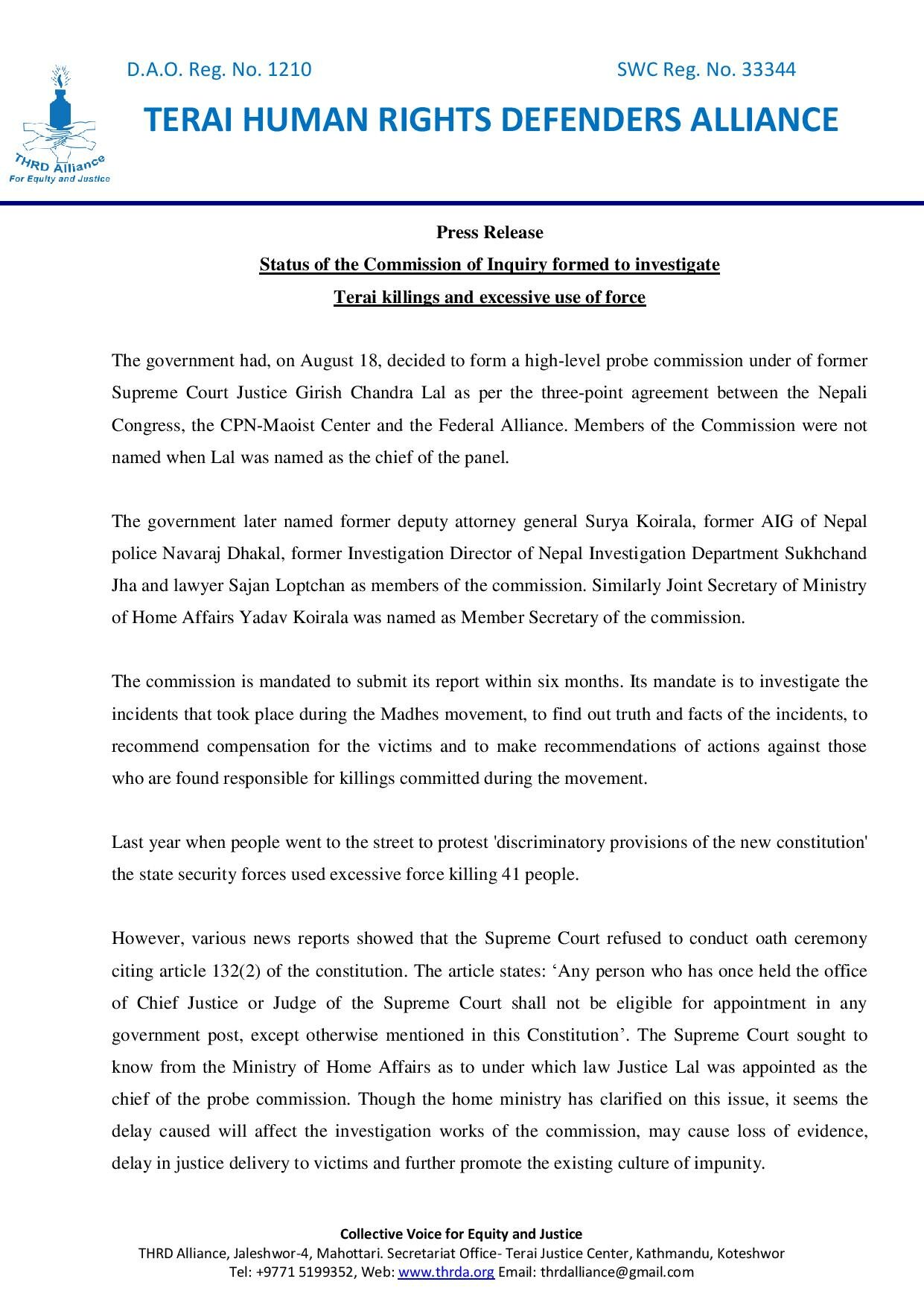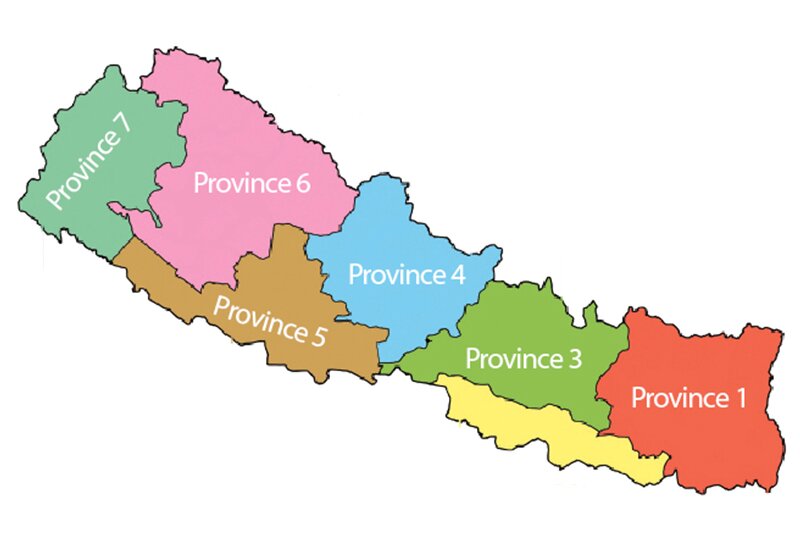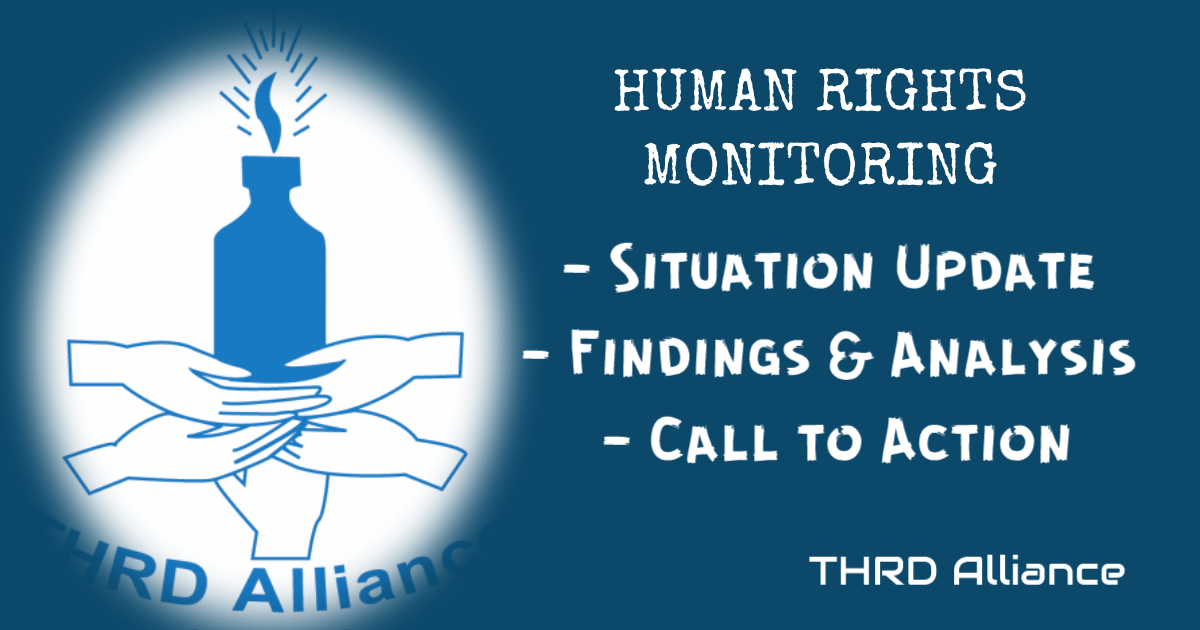The government had, on August 18, decided to form a high-level probe commission under of former Supreme Court Justice Girish Chandra Lal as per the three-point agreement between the Nepali Congress, the CPN-Maoist Center and the Federal Alliance. Members of the Commission were not named when Lal was named as the chief of the panel.
The government later named former deputy attorney general Surya Koirala, former AIG of Nepal police Navaraj Dhakal, former Investigation Director of Nepal Investigation Department Sukhchand Jha and lawyer Sajan Loptchan as members of the commission. Similarly Joint Secretary of Ministry of Home Affairs Yadav Koirala was named as Member Secretary of the commission.
The commission is mandated to submit its report within six months. Its mandate is to investigate the incidents that took place during the Madhes movement, to find out truth and facts of the incidents, to recommend compensation for the victims and to make recommendations of actions against those who are found responsible for killings committed during the movement.
Last year when people went to the street to protest ‘discriminatory provisions of the new constitution’ the state security forces used excessive force killing 41 people.
However, various news reports showed that the Supreme Court refused to conduct oath ceremony citing article 132(2) of the constitution. The article states: ‘Any person who has once held the office of Chief Justice or Judge of the Supreme Court shall not be eligible for appointment in any government post, except otherwise mentioned in this Constitution’. The Supreme Court sought to know from the Ministry of Home Affairs as to under which law Justice Lal was appointed as the chief of the probe commission. Though the home ministry has clarified on this issue, it seems the delay caused will affect the investigation works of the commission, may cause loss of evidence, delay in justice delivery to victims and further promote the existing culture of impunity.
We would like to remind everyone that on September 15, 2015 in the case of Bismilah Khatun vs. Government of Nepal, the Supreme Court itself issued an interim order telling the security agencies not to use lethal force during the movement. This order resulted in a decline in the killing of civilians. But the proper investigations into the incidents and protest related deaths have not been carried out yet. Protesters were also blamed for resorting to violence during the movement. The state has been investigating into complaints of violence against the protesters and in Kailali and Mahottari, and has indicted many people in criminal cases. This means the state has initiated unilateral investigation as the state has not yet initiated investigation into the allegation of rights violation against security personnel.
A proper inquiry into all incidents including killings must be done. Otherwise, the victims’ families cannot get justice and it will encourage impunity.
Therefore, it is expected that the newly formed probe commission will investigate the incidents and make recommendations for compensation and reparation.
A Probe commission was formed under former justice of Supreme Court Tahir Ali Ansari to investigate into the killing of Sadrul Miya Ansari. Similarly, a probe commission was formed under former justice of Supreme Court Krishna Jung Rayamajhi to probe into the rights violation committed during 2006 popular movement. Another probe commission was formed under former justice Mohan Prakash Sitaula. Whenever a former Justice was named as the chief of a commission, there was never a question as to whether or not his/her appointment was an office of benefit and whether or not that was constitutionally valid but only this time such a debate arose when time came for Lal to take oath of office and secrecy.
Therefore, we would like to draw attention of the concerned stakeholders that delayed justice is denied justice. It is urgent to address this issue and overcome the legal obstacles to escalate the works of the inquiry commission.




